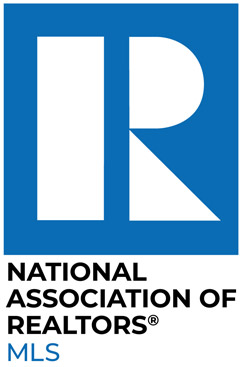Closing on a house might seem straightforward- you find a home you want to buy, send in your offer, and you both agree to the terms in the contract and sign it! Unfortunately, that’s not always the case. Once you and the seller sign the contract, the closing process starts- and therein lies the rub. Home closings don’t usually move as quickly as anticipated. In fact, over 19% of all real estate transactions experience delays. Keep reading to learn more about home closing delays and their causes.
Key Takeaways:
- Over 19% of home sales will encounter delays.
- Out of the delayed home closings, the most common causes were financing issues (37%), appraisal issues (18%), and inspection issues (16%).
- Title clouds are also a common cause of home closing delays.
- Working with a skilled real estate agent can help resolve most home closing delay issues.
How Long Does a Home Closing Take?
Typically, the average home sale will take 30 to 45 days. That applies to the standard real estate transactions that require mortgage applications, inspections, appraisals, and insurance. Cash buying that doesn’t require a lender might close much more quickly- as fast as two weeks. Conversely, homebuying that includes first-time buyer programs or backing from the FHA involves more paperwork and can consequently take longer to close. Your personal needs or those of the seller can also contribute to a home closing taking longer than usual.
5 Causes of Home Closing Delays in Tampa
Here are a few causes of delays in home closing in Tampa:
Financing Issues
If you’re like most buyers, financing a home through a mortgage is necessary to buy a home. And because the entire sale hinges on securing this mortgage, financing is a top criterion for closing, and it’s also the most common reason for a delay in the home closing process. In fact, it accounts for 37% of all home closing delays.
That’s usually because obtaining a loan by the closing date can be challenging. Interest rates can hike unexpectedly, affecting your qualification if the loan isn’t locked, or your credit score or income can change, causing the underwriter to reject the mortgage application. And if the lender doesn’t grant you the mortgage, the contract can delay or get canceled if the seller doesn’t agree to an extension.
The ideal way to avoid financing setbacks is to get preapproved for the mortgage before submitting an offer. You may also want to go the extra mile to get pre-underwritten for a mortgage, which offers even more security for both you and the seller.
Appraisal Falls Short
Any mortgage lender will require a home appraisal to verify that the house is indeed worth the price you have agreed to pay for it. After all, the lender is taking a risk, and needs to be reasonably sure of their ability to recoup their losses should you fail to repay the mortgage.
As home prices have soared high in recent years, appraisal gaps (the appraised value is less than the agreed-upon price of the house) have become common. In fact, according to NAR, 18% of delayed contracts are due to appraisal issues. And while this doesn’t necessarily kill the deal, addressing it may take time.
Note: If the appraisal comes in lower than the offer price, you may need to renegotiate with the seller or come up with additional money, which you may not be able (or want) to do. Similarly, the seller may not agree to lower the price of the house. As such, it’s crucial to include an appraisal contingency in the contract, which allows you to cancel the agreement and retain your earnest money deposit.
Home Inspection Issues
Home inspection is one of the most crucial steps in the buying process. And while it can be frustrating, it illuminates the issues that sellers have to address before closing. Major repairs that come up during the house inspection, for instance, pest infestations and foundation issues that are costly enough may require you to renegotiate the offer price. You may ask the seller to make the repairs themselves before closing the deal or a reasonable decrease in the sale price based on the cost of repairs. Either way, home inspection issues can result in home closing delays.
Title Clouds
A real estate title asserts your legal right of ownership of a home. Unfortunately, there could be title issues that even the seller is unaware of, and that can precipitate legal complications that inevitably delay a home closing. These issues can entail liens on the house or unpaid property taxes. There could be unresolved disputes over who owns or inherited a home and illegal or fraudulent deeds are possible as well. Even minor errors in public records could cause significant confusion, putting the real estate transaction on hold until everything is sorted out. Usually, the seller can get ahead of the title issues by having a real estate attorney track the property’s title history.
Not Working with a Skilled Real Estate Agent
It should be clear by now that buying a home is a complex endeavor. And not relying on a real estate agent’s expertise for guidance and negotiations through every step can result in huge missed opportunities. A real estate agent can help with virtually all the issues outlined above- they can help identify which repairs to ask the seller to fix after the inspection, negotiate costs and terms, guide you on what contingencies to include in your contract, and set realistic closing dates. Not taking advantage of these services can set you back or derail a closing.
Need Help Buying a Home in Tampa? Call Us!
The homebuying process can be stressful. A delayed home closing can make things worse. While some issues are out of your control, the ideal way to avoid home closing delays is to follow the guidance of a team of experts. Our real estate agents can help you check off all the boxes to ensure you’re doing everything possible to close your home transaction on schedule. Call us today for more information about home closing and the overall homebuying process.










